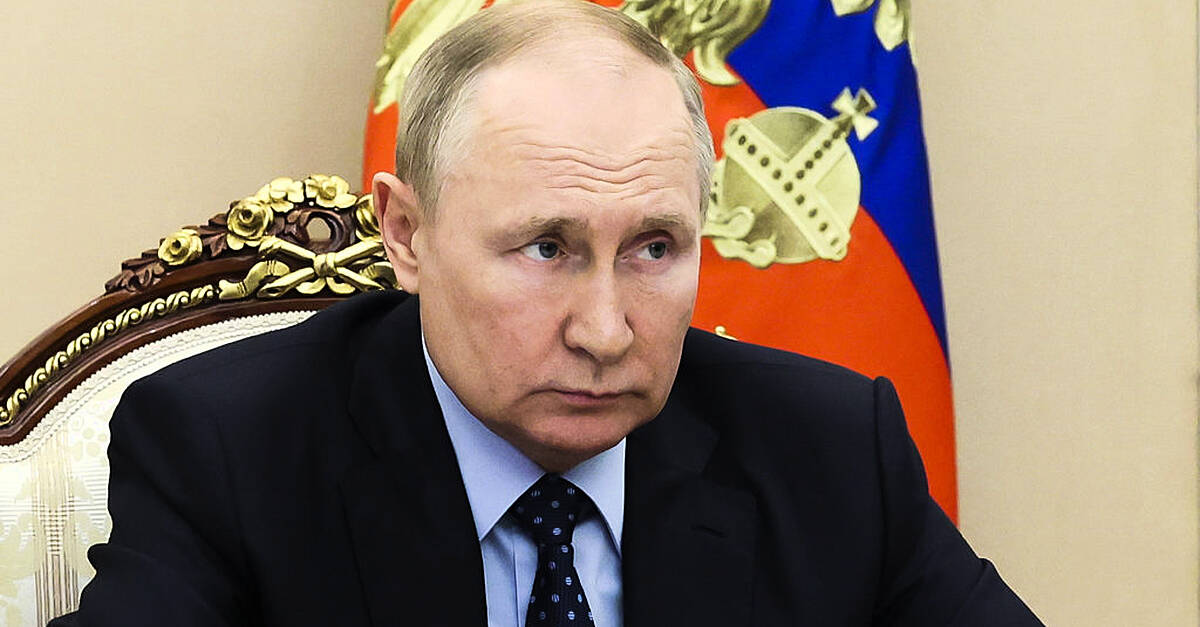[ad_1]
Although Prime Minister Fumio Kishida had to settle for a virtual meeting with U.S. President Joe Biden on Friday, the online summit proved fruitful for the Japanese leader as the two sides agreed to set up an economic version of a “two-plus-two” ministerial meeting in a bid to promote cooperation.
The launch of the meetings, similar to security talks involving the allies’ foreign and defense chiefs, comes as Japan and other Asian nations have urged the United States to take a more active economic role in the Indo-Pacific years after the administration of Biden’s predecessor pulled the U.S. out of the Trans-Pacific Partnership trade agreement. It also comes as China continues to see its economic clout grow in the region.
“The president wanted it to be known clearly that he was going to continue to step up our game in the Indo-Pacific across the board on issues ranging from diplomacy to military security, and also to trade,” a senior U.S. official told reporters on condition of anonymity.
The economy-focused two-plus-two framework is expected to take up supply chains, technology investments and standard-setting, the senior U.S. official said. Infrastructure investment, economic security, green energy, trade and other issues were also expected to be discussed, Kyodo News quoted Japanese government sources as saying.
The four members of the new framework will be Japan’s foreign and industry ministers and the U.S. secretaries of state and commerce.
During the nearly 90 minute meeting, the two leaders also agreed to boost cooperation on other pressing security and economic issues, including China’s assertive actions in the region, North Korea’s nuclear weapons program and Russia’s military buildup near Ukraine.

“We agreed to work together to advance cooperation among like-minded nations to realize a free and open Indo-Pacific,” Kishida told reporters.
“We agreed to closely cooperate on regional issues, including the East and South China Seas, Hong Kong, and the Xinjiang Uyghur (Autonomous Region), as well as North Korea’s nuclear and missile issues,” he added.
On Ukraine, Kishida said he and Biden would work closely to prevent a Russian invasion of its neighbor and would “keep close contact with other allies and partners and continue communicating on the point that any attack will be met with strong action.”
Biden also accepted Kishida’s invitation to visit Japan for an official visit and to take part in a meeting of Quad leaders in Tokyo in the late spring, a senior U.S. official told reporters. The Quad groups Japan, the U.S., India and Australia.
Kishida has talked up the prospect of actively “promoting summit diplomacy” in recent weeks, and had hoped to meet with Biden in person, though the rapid spread of the omicron variant on both countries, as well as domestic issues in the U.S., forced the talks to go virtual.
A large part of the talks focused on China, officials from both countries said, as the two leaders seek to bolster the U.S.-Japan alliance and deter economic and military threats from Beijing.
Kishida said the two leaders had agreed on the importance of peace and stability in the Taiwan Strait, calling for a “peaceful” resolution of the cross-strait issue with China.
Tokyo and Washington have reportedly begun work on formalizing a joint operations plan between the U.S. military and Self-Defense Forces in the event of a contingency over the self-ruled island. China regards Taiwan as a renegade province to be unified with the mainland, by force if necessary.

Japan has grown increasingly concerned over the Chinese military’s moves near Taiwan, which LDP heavyweights, including former Prime Minister Shinzo Abe, say could explode into conflict and in turn threaten the security of Japan. Kishida, himself, has said Taiwan could be “the next big problem” for Japan.
Kishida and Biden also expressed opposition to attempts by China to unilaterally change the status quo in the East and South China seas. The East China Sea is home to the Japanese-controlled, Chinese-claimed Senkaku Islands, and Kishida secured a U.S. commitment to Article 5 of the U.S.-Japan security treaty, which states Washington will defend territories under Japan’s administration from armed attack.
With Biden and Kishida facing elections this year — Japan has an Upper House poll scheduled for this summer and U.S. midterm congressional elections are in November — both are expected to continue to take a tough stance on China.
On North Korea, the two leaders agreed to work to rein in the country’s nuclear and missile programs, both sides said, while Kishida told reporters that Biden had expressed support in seeking return of Japanese nationals abducted by Pyongyang in the 1970s and 1980s.
On Thursday, North Korea said it may bolster its defenses against the United States and consider restarting “all temporally-suspended activities” — an apparent reference to a self-imposed moratorium on nuclear weapons and long-range missile tests.
The announcement came after the North launched two apparent ballistic missiles on Monday as the nuclear-armed country continues to test weapons at a frenetic pace in 2022.

The launches — the isolated country’s fourth show of force this year — have highlighted progress in the North’s missile programs as it seeks to create weapons capable of evading defenses. Officials and experts say North Korea continues to make rapid advances in its weapons programs and the latest launches highlight how crushing sanctions and the COVID-19 pandemic have done little to rein in Pyongyang’s nuclear and missile ambitions.
The pace of the country’s weapons testing has heightened concerns in Tokyo, with top officials including Kishida and defense chief Nobuo Kishi openly suggesting Japan acquire a so-called strike capability as a deterrent to potential attacks.
Such a move would represent a major shift for the country’s defense posture and would go far in the minds of U.S. defense planners in terms of fulfilling Japan’s promise to bolster it’s defense.
Japan is due to complete a review of the country’s long-term diplomacy and defense strategy within the year, including an update of the country’s National Security Strategy for the first time ever and a revision to its National Defense Program Guidelines, which detail key defense policy challenges and how they will be tackled over a 10-year period. The North’s nuclear and missile developments are sure to be a focus of the review.
Observers, however, remain uncertain that Japan acquiring a strike capability would be the best approach, let alone one that stands up to legal scrutiny. Some say possessing such a capability could violate Article 9 of Japan’s war-renouncing Constitution, though proponents have said there are legal loopholes that would allow for such a move.
In a time of both misinformation and too much information, quality journalism is more crucial than ever.
By subscribing, you can help us get the story right.
SUBSCRIBE NOW
[ad_2]
Source link
















